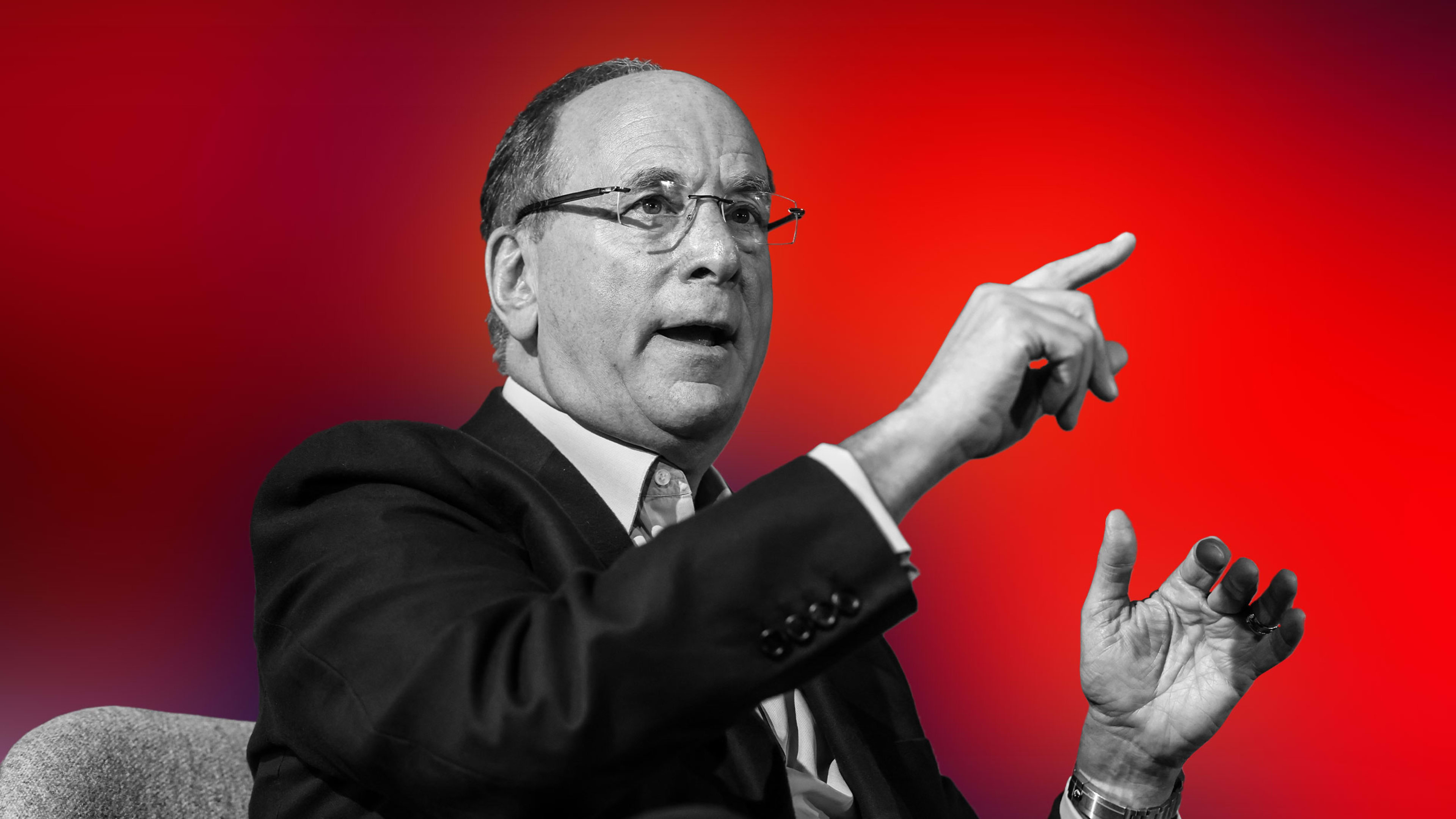Americans who are tired of hearing BlackRock CEO Larry Fink advance the tenets of ESG investing are in luck.
According to remarks he apparently gave on Sunday at the Aspen Ideas Festival, the head of the world’s largest asset management firm is finally acknowledging that he is not going to use the phrase “ESG” anymore because it’s become too “weaponized” by both sides. He told the crowd, “I’m ashamed of being part of this conversation,” according to an Axios reporter who was in attendance.
That is the most distance Fink has ever put between himself and the controversial term, which stands for environmental, social, and corporate governance. A year or two ago, it would have been harder to imagine a louder defender of ESG investing, part of what Fink described as a shift toward “stakeholder capitalism.”
But his vocal support has increasingly made BlackRock a target of invective from Republicans who decry the investment strategy as “woke capitalism,” not tethered to the firm’s fiduciary duty. The discourse has cast BlackRock as a villain in conspiracy theories where it’s essentially plotting to take over the globe, along with elite status symbols such as the World Economic Forum and Bill Gates. It’s blossomed into a counterattack that, as Fast Company reports from on the ground in the current issue, is proving surprisingly effective.
That anti-ESG blowback is getting buttressed by attacks on “woke” brands like Target and, of course, Bud Light, the latter of whose sales have slipped by as much as a quarter amid ongoing boycotts. The battle between the Walt Disney Company and Florida Governor Ron DeSantis—which has metastasized into more of a hubristic public power play—has likewise created fallout: Disney has scrapped plans to spend a billion dollars on a new Florida campus that would have created more than 2,000 jobs.
In Aspen, Fink reportedly admitted that Florida’s decision last year to also yank $2 billion in assets from BlackRock hurt the company, according to Axios, but he added for context that 2022 saw net inflows of $200 billion from U.S. clients, giving them their best year ever.
Still, his grumbling about attacks from anti-ESGers has been going on for months. Now, Fink says, he’s at least done uttering that literal term: “I’m not going to use the word ESG because it’s been misused by the far left and the far right,” he said, adding: “When I write these [investment] letters, it was never meant to be a political statement. . . . They were written to identify long-term issues to our long-term investors.”
A spokesperson for BlackRock confirmed Fink’s remarks with Fast Company.
As we reported in our feature, this is the culmination of a clawback that has been underway for some time. It’s fair to call Fink’s investment letter one of corporate America’s most-anticipated annual notes. This year’s letter came out two months late and stretched for 9,000 words without mentioning ESG once.
Prominent anti-ESG voices told Fast Company that Fink’s posture had become “so defensive, overly defensive,” and predicted he was done. The term ESG was seemingly also banished from BlackRock’s new round of voting guidelines, released in January. That coincided with Fink giving media interviews where he called the attacks “personal,” thanks to unhinged critics coming after him directly.
Even those previous steps back have been decried as caving to anti-ESG forces. To reassure BlackRock clients who still believe that stakeholder capitalism is, as Fink declared in 2022’s letter, “not about politics” and “not ‘woke,’” but rather merely “capitalism,” Fink assured the crowd in Aspen that they don’t mind still doing the environmental, social, and corporate governance stuff if it’s under a different name. “We talk a lot about decarbonization, we talk a lot about governance . . . or social issues, if that’s something we need to address,” he said.
Correction: An earlier version of this story misstated a quote. It’s “stakeholder capitalism,” not “shareholder capitalism.”
Recognize your brand’s excellence by applying to this year’s Brands That Matter Awards before the final deadline, June 7.
Sign up for Brands That Matter notifications here.
